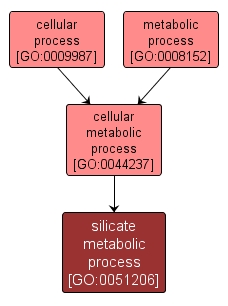| Desc: |
The chemical reactions and pathways involving silicates, the salts of silicic acids. Silicates are usually composed of silicon and oxygen (Si[x]O[y]), one or more metals, and possibly hydrogen. Types of silicate include unisilicates, metasilicates and hydrous silicates. |














